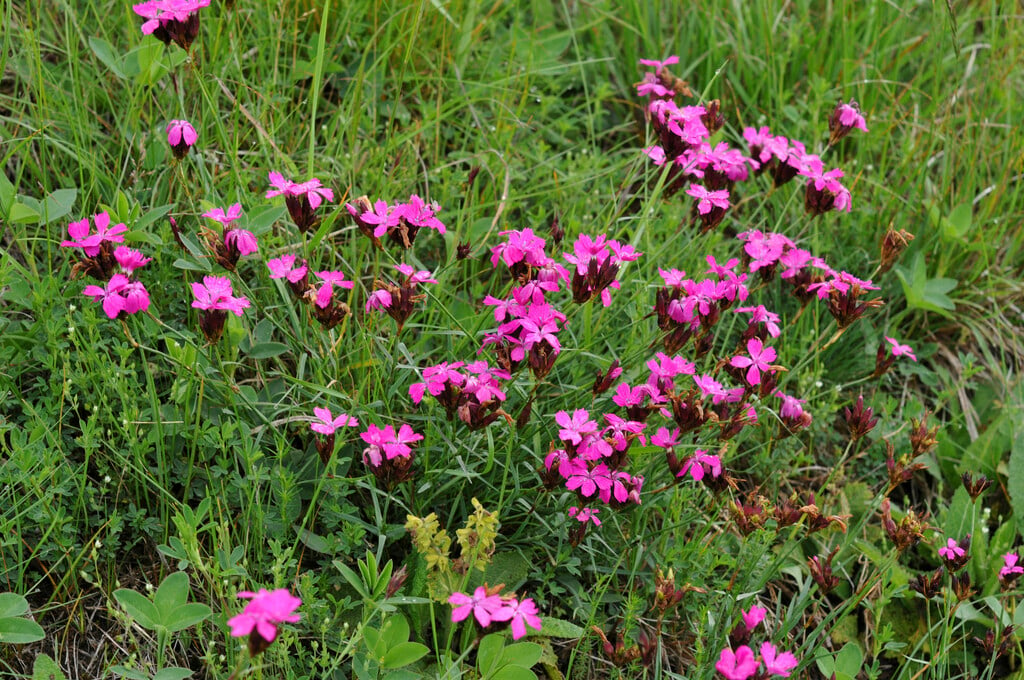Dianthus carthusianorum
German pink
A variable evergreen perennial with lax to erect stems, to 50cm or more, rising from a woody base. Leaves are linear, dark green, clustered and numerous at the base, paired at the nodes on the flower stems. Flowers many, in rather dense terminal clusters, opening from leathery bracts. Usually reddish magenta, throughout the summer
Size
Ultimate height
0.1–0.5 metresTime to ultimate height
2–5 yearsUltimate spread
0.1–0.5 metresGrowing conditions
Moisture
Well–drainedpH
Alkaline, NeutralColour & scent
| Stem | Flower | Foliage | Fruit | |
| Spring | Green | |||
|---|---|---|---|---|
| Summer | Purple | Green | ||
| Autumn | Green | |||
| Winter | Green |
Position
- Full sun
Aspect
South–facing or East–facing
Exposure
Exposed or Sheltered Hardiness
H7Botanical details
- Family
- Caryophyllaceae
- Native to GB / Ireland
- No
- Foliage
- Evergreen
- Habit
- Bushy
- Potentially harmful
- Humans/Pets: Skin allergen, wear gloves and other protective equipment when handling. For further information and contact numbers regarding pets, see the HTA guide to potentially harmful plants
- Genus
Dianthus can be annuals, evergreen perennials or subshrubs with narrow, often greyish leaves and showy flowers that are frequently fragrant
- Name status
Correct
- Plant range
- Europe
How to grow
Cultivation
Grow in a well-drained, neutral to alkaline soil in full sun. Prefers a soil enriched with well-rotted manure or garden compost and an application of a balanced fertiliser in spring
Propagation
Propagate by softwood cuttings of non-flowering shoots in summer or by layering after flowering
Suggested planting locations and garden types
- Gravel garden
- Prairie planting
- Coastal
- Cottage and informal garden
- Patio and container plants
- Low Maintenance
- Banks and slopes
- Flower borders and beds
- Cut flowers
- Garden edging
Pruning
Deadhead regularly to prolong flowering
Pests
Diseases
May be susceptible to powdery mildews, a rust, a virus and fusarium wilt
Love gardening
Sign up to receive regular gardening tips, inspiration, offers and more
View our Privacy Policy
Get involved
The Royal Horticultural Society is the UK’s leading gardening charity. We aim to enrich everyone’s life through plants, and make the UK a greener and more beautiful place.
